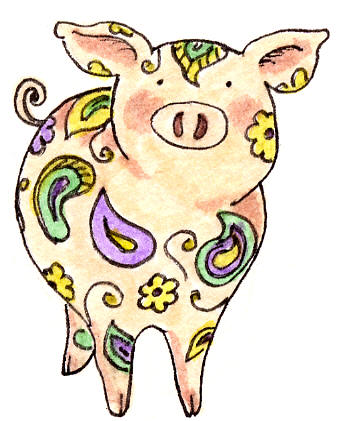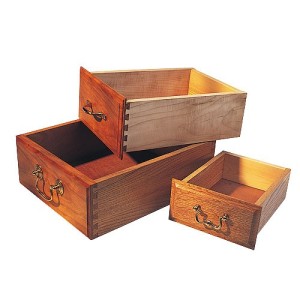30-Second Word Whoop(s): “Lottery” and “Lot”
You may feel you’re stuck with your lot in life, unless fortunes change and you win the lottery.
“Lottery,” defined as a game of chance, stems from the Italian lotteria. It’s rooted in the Old English “lot” — hlot, with a silent “H” — which means an “object (anything from dice to straw, but often a chip of wood with a name inscribed on it) used to determine someone’s share,” also “what falls to a person by lot.” In other words, a portion or share that is not necessarily meant for sharing.
 There’s a lot about Lot in the Bible. In Genesis, he travels with his uncle Abram, has incestuous relations with his daughters — hey, this is the guy Jesus descended from? Indeed, “through David’s great-grandmother Ruth, who is descended from Lot’s son Moab,” according to Wikipedia. And, just guessing, the Bible as a second source.
There’s a lot about Lot in the Bible. In Genesis, he travels with his uncle Abram, has incestuous relations with his daughters — hey, this is the guy Jesus descended from? Indeed, “through David’s great-grandmother Ruth, who is descended from Lot’s son Moab,” according to Wikipedia. And, just guessing, the Bible as a second source.
I suppose we all take chances when we procreate.
Drawing lots can sometimes mean the “winner” is a loser, as some dreaded task befalls the one holding the short lot.
Parking lots allow us to fit a lot of cars in one place, saving lots of time getting in and out because of their orderly arrangement. One place you don’t want a ticket is a parking lot.
From order, we know, comes chaos.
 An empty or abandoned lot offers either lots of potential or dread. It’s also a good place to find sticks and chips of wood in order to draw lots.
An empty or abandoned lot offers either lots of potential or dread. It’s also a good place to find sticks and chips of wood in order to draw lots.
The game of lotto — which the dictionary defines as “bingo” — relies on a whole lotta luck and random forces being aligned in your favor. Chances are, you won’t win.
To increase your chances, though, dive in with a pool of people and divvy up shares — “lots” to be parceled out — which may prod you to trade in your current house and lot for something more stately, perhaps with pillars.
Just beware the fate of Lot’s wife who, when fleeing Sodom, looked back and turned into a pillar of salt.
Dumb luck.
Related articles
- Beware of sharks swimming in your lottery pool (usatoday.com)
30-Second Word Whoop: “Homefront”
If you’re in the news media business, the answer might be: “Everything.”
“Homefront” is the term we at USA TODAY use to refer to the “front page” of our website. More commonly, website designers and users refer to any dotcom landing page as a “home page” (coined in 1993).
The patriotic concept of “home front” hails from 1917, the World War I era.
The patriotic nation’s newspaper was established in 1982.
Something about the term homefront in our digital all-hands-on-deck race raises the stakes — as if we’re constantly at war.
And we are, against the clock and ourselves, as we are our own worst enemies, knowing full well haste makes waste.
One thing for sure: We at USA TODAY try to ensure our homefront always maintains a certain curb appeal.
30-Second Word Whoop: “Hogwash”
“Hogwash” seems an oxymoron, unless the pig in question is awash in mud.
The term comes from the slop that pigs sloppily eat — a farm mix of refuse that swine have a hard time refusing. Fascinating how many loosey-goosey synonyms for hogwash we can find on the farm:
- applesauce
- balderdash (on Scottish farms, a mix of milk and ale)
- baloney (homonym for “bologna,” made from the pigs)
- bilge water
- balls
- bull
- bull dust
- bullshit
- crock
- a load of manure, crap, shit, etc.
- fiddle-faddle (using corn from the farm)
- garbage
- rubbish
- trash
- tripe
- rot
- horse feathers (mythically speaking)
- horseshit
- humbug (chasing the horseflies)
- poppycock (daddy rooster? No, literally “soft dung”)

I’m on a sausage roll.
It’s all nonsense, however you slice it. Whether or not there’s truly a bacon shortage, there’s no shortage of ways to say “nonsense” — so no sense limiting yourself to “nonsense.”
A few choice more, for the rinse:
- blather
- drivel
- drool
- eyewash
- moonshine
- soft soap
- swill
Related articles
- 30-Second Word Whoop: “Piggyback” (wordwhoops.wordpress.com)
- 30-Second Word Whoop: “Bologna” (wordwhoops.wordpress.com)
30-Second Word Whoop: “Piggyback”
 When pigs fly … REALLY?! Try when pigs give each other piggyback rides. Because they don’t. They would sooner fly.
When pigs fly … REALLY?! Try when pigs give each other piggyback rides. Because they don’t. They would sooner fly.
As promised, in time for holiday hams, we dissect “piggyback.”
This site doesn’t typically scrape so low as to piggyback on dictionary.com’s word of the day, but recently we slipped. The word was “dovetail,” a verb the urban dictionary calls a synonym for “piggyback.” Today, we’re piggybacking on that thought.
With “piggyback,” used as a verb since 1952, it seems we have a failure to communicate: It’s one of those words that got lost in translation, like piglatin. Most word detective sites say it’s a case of a folk etymology alteration — a corruption — of “pick pack” (1560s) or “pickaback.” The “pick” in this case is a dialectal variant of “pitch,” to throw. The 16th-century pickaback, then, described throwing something on one’s back to carry it, as a beast of burden might. Piggy power wasn’t harnessed in this way, though, because they are snooty and unruly beasts who’d rather pitch themselves into a pitch pit.
What’s interesting is that “piggybacking” today is not so much about work, but play. Most piggybacking observed across the animal spectrum is about parents carrying offspring — giving them rides, whether as a practical method of transportation or as an amusement — the organisms appear fused, but it’s really just strengthening their bond. A synonym is “pooseback” — you can picture the papoose. Like a human caboose.
 Another modern definition of piggyback: “to obtain a wireless Internet connection by bringing one’s own computer within the range of another’s wireless connection without that subscriber’s permission or knowledge.” A free ride on the Internet. Executed by low-life swines.
Another modern definition of piggyback: “to obtain a wireless Internet connection by bringing one’s own computer within the range of another’s wireless connection without that subscriber’s permission or knowledge.” A free ride on the Internet. Executed by low-life swines.

Occasionally you’ll see animals riding piggyback who are actually mating. The better to create more children to give more piggyback rides to.
Related articles
- 30-Second Word Whoop: “Dovetail” (wordwhoops.wordpress.com)
- 30-Second Word Whoop: “Hogwash” (wordwhoops.wordpress.com)
30-Second Word Whoop: “Dovetail”

These doves were just done interlocking when I snapped this instagram love-gram. (Photo by Terry Byrne)

A half-blind dovetail joint. A dovetail joint is comprised of a tenon and mortise. (Photo credit: Wikipedia)
As a birder, I admire hordes of dove tails.
I know by heart their rounded, tapering lines, like fancy Chinese fans; I know by sound their loopy wing whistle, which may or may not involve tail feathers. It signals that a mourning dove somewhere is hauling ass, so to speak.
Today, Dictionary.com plucked “dovetail” from the blue as its word of the day, defining it as the stock verb: “to join or fit together compactly or harmoniously.”
Often used in building trades to describe a joint with interlocking pieces shaped roughly like a dove’s tail, the compound noun form of dovetail fastens things together “logically,” according to Webster’s New World.
Logically speaking, then, why is “piggyback” a synonym for dovetail? In a work meeting, for instance, I might dovetail off your point. Things get disjointed if, say, in depositions, Witness A’s story doesn’t dovetail with Witness B’s story.
(Hey, do piggies really ride each other? I can think of loads of other animals who ride or get ridden in a superior fashion — how did piggies get chosen? Thought to be continued with an upcoming Word Whoop on “piggyback.”)
Dovetail juxtaposes neatly with “beavertail” — for those occasions when you’re fixing not to haul ass but to haul something.A beavertail trailer has a slight decline at the end of the deck, to make loading and unloading easier. The slanted part is also called a dovetail, I’m guessing, for its interlocking joints that allow it some flux. Not to be confused with “fishtail,” which suggests too much flux.
Turns out “dovetail” is a pretty handy term. There are dovetail jigs (used to cut dovetail shapes, for drawers, for instance) and dovetail saws for crafting things of wood — anyone have cause for a wooden craft or an ark at this juncture?
Here’s a description from Lie-Nielsen Toolworks’ website trumpeting its dovetail saw:
“Since dovetailing is a ripping operation, where the kerf is running with the grain, our Dovetail Saw has its teeth filed to a rip profile, unlike other dovetail saws on the market today.”
Kinda wrenches the dove from its peaceful image. In truth, doves are voracious eaters, more like pigs, and will let nothing get between them and their millet.
Whether you’re trying to connect 4-by-4’s, or connecting doves, pigs, beavers, even turtle doves when animals go marching two by two, here’s hoping it all dovetails nicely for you.
Related articles
- Dovetail Divide (wordsoftheone.wordpress.com)
- A tale of two doves (stusshed.com)
30-Second Word Whoop: “Redoubt”
If the prefix “re-” means “again” or “return to” / “go back” (see previous post on “Reserve”), then why wouldn’t “redoubt” mean “to second-guess” or to pose — with a skeptical Columbo-esque turnabout — one final probing question? (The rumpled TV detective was known to press prime suspects with “Just one more thing …”)
On second thought, maybe I shouldn’t dissect “redoubt.” The definition is so counterintuitive as to be ridiculous.
“Redoubt” is not even a verb. It’s a noun meaning — wait for it — “a breastwork outside a fortification, to defend approaches, etc.”
SAY, WHAT? Breast … fornication? I shoulda known. It’s from the French. Another take: “a breastwork within a fortification.” Sure, that clears things right up.
Oh, hold on. The second definition is easier to penetrate: “any stronghold.”
I’m still stuck on the breastwork thing. Doncha love definitions that make you reach again for the dictionary? A sort of re-lookup. Redoubting the dictionary’s efficacy as a tool of information.
“Breastwork” is simply this: “a low wall put up quickly as a defense in battle.” OK. That’s pretty much striking out at second base. Got it.
So what gives on “redoubt”? Its basic etymology:
1608, from Fr. redoute, from It. ridotto “place of retreat,” from M.L. reductus “place of refuge, retreat,” from L. reduct-, pp. stem of reducere “to lead or bring back” (see reduce). The -b- was added by influence of unrelated Eng. doubt.
I give up.
Now, the American Redoubt I’ve heard of. This “strategic relocation movement” was popularized by 2008 presidential candidate Chuck Baldwin (Constitution Party), who marched his whole clan first to colonize western Montana. The movement spawned weekly podcasts by Christian Libertarian journalist John Jacob Schmidt, called Radio Free Redoubt — billed as a “Refuge for God-Fearing, Liberty-Loving Patriots of the Western United States.”
First proposed by survivalist novelist and blogger James Wesley Rawles, the American Redoubt pinpoints three states — Idaho, Montana and Wyoming (all decidedly red), plus adjoining parts of Oregon and Washington (blue) — as havens for survivalists, conservatives, doomsday preppers, etc. Utah and New Hampshire also have made “free state” inroads.
Seems like the opposite of patriotism, and freedom, to me. My readout: I feel safer living as far as possible from people hoarding ammo and explosives.
30-Second Word Whoop: “Reserve”
Possibly nothing illustrates delayed gratification better than stashing something valuable away to be enjoyed much, much later.
Squirrels get it. They scramble for what they need to survive for the day, then add a cushion of comfort — a reserve of nuts in some tree pocket.
Some things get better with age, the longer you don’t touch them. A private wine stock in reserve. An investment in reserves. Futures.
Future delights.
There’s a holding back, a restraint, maturity required to make what’s in reserve count. Then … prepare to lay claim to the finest stuff in life — the best table at a restaurant, the best seats in a theater — only with a reservation. Supply some collateral first: a ticket you’ve paid dearly for, a promise to spend freely on the establishment’s “Gran Reserva,” Spanish or Portuguese wine that is regulated and certified to have aged at least five years (two in the cask, three in the bottle). Once you have that reservation, look forward to not holding back. Whether it’s dinner at 8, or the in-room hot tub with the Vintage Hotel’s honeymoon suite.
I say without reservation that the Federal Reserve is something of a contradiction. It jumps in and acts, allegedly on behalf of the people. Likewise reservists. We save them for a rainy day, but when bombs start raining down, we call on their reserve of energy, hoping their battle mettle isn’t rusty.
What if reservists re-serve? Re-enlist. Re-sign up. Love the contradiction in re-sign (back for more) and resign (quit). Just don’t try to re-serve that reserve wine. Tacky.
A reserve clause in baseball benefits the owners. A forest reserve might benefit those pack-rat squirrels.
I have reservations about holding my tongue.
Those counting the house stash can only hope that gamblers at an Indian reservation casino don’t hold back — rather, throw caution to the wind.
If someone seems reserved, no doubt he is likely to come uncorked later and blow the roof off the reservation.
















